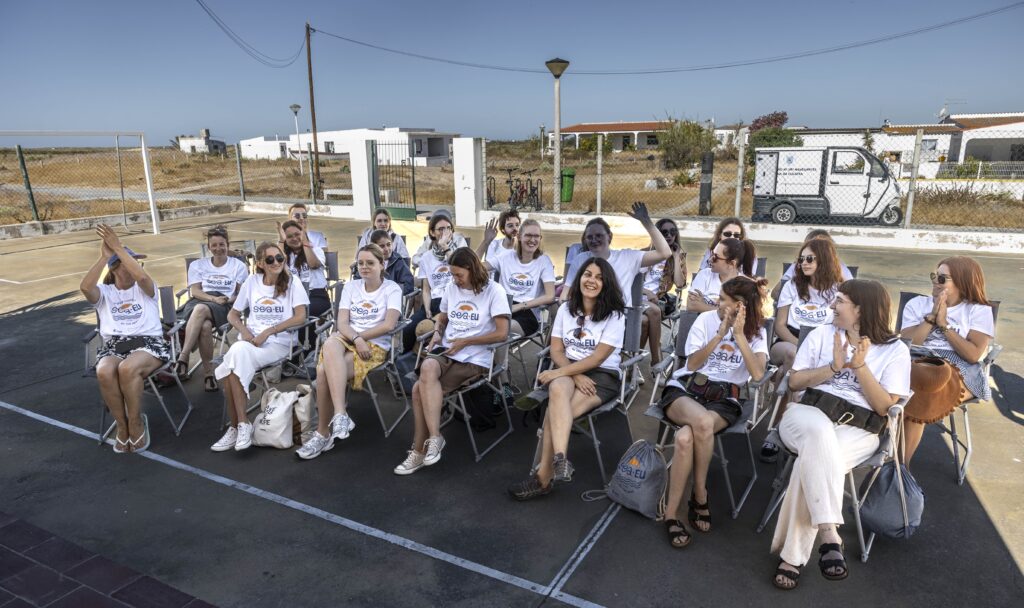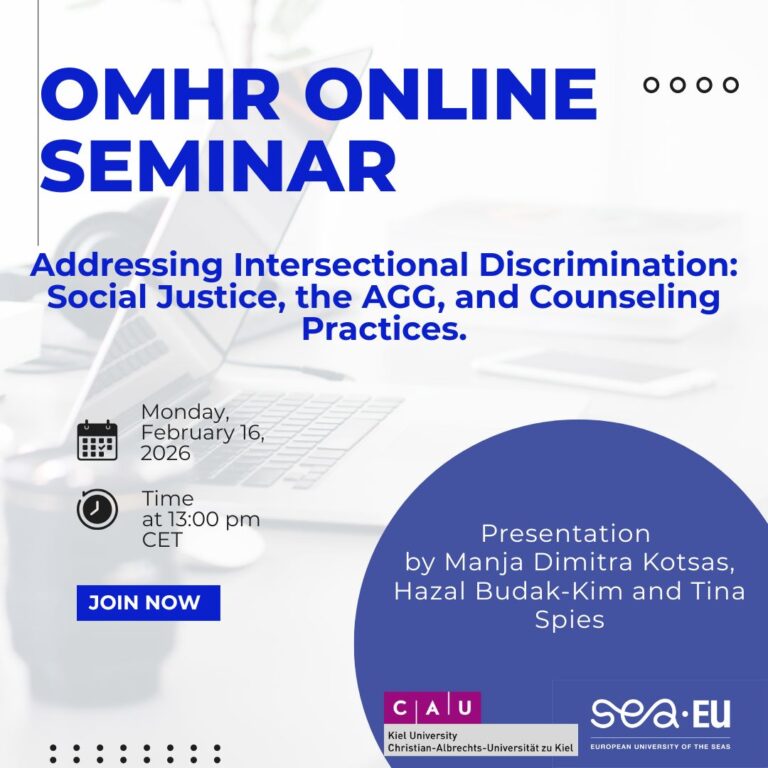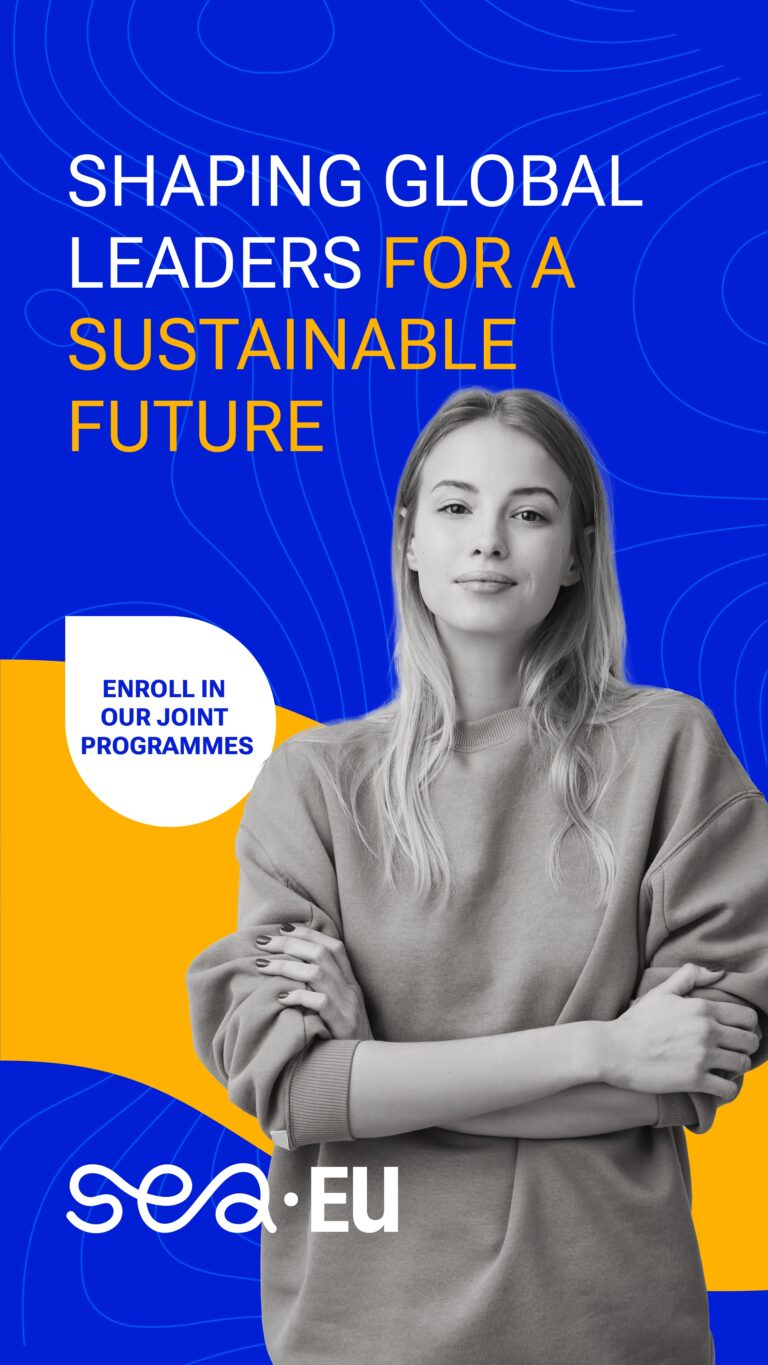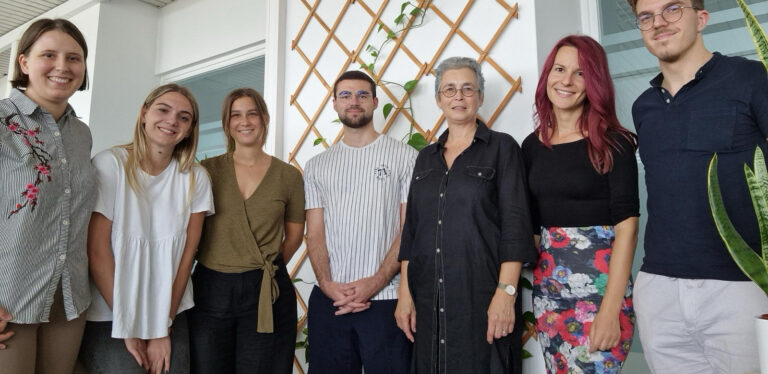Under the SEA-EU Blended Intensive Program (BIP) format, 19 students from the Universities of Split (Croatia), Kiel (Germany), Gdańsk (Poland), and Naples Parthenope (Italy) gathered in Portugal from June 17th to 21st. Hosted and organized by the University of Algarve in collaboration with the Universities of Gdańsk and Naples Parthenope, students participated in the BIP titled “Sustainability and Social Innovation on the Move“. This program aimed to deepen participants’ understanding of sustainability and its critical role in addressing global challenges like climate change, resource depletion, and biodiversity loss.
The program was structured into two main phases:
- Initial Online Workshops: Three preparatory online workshops featured introductory videos and research activities from the three Universities.
- Physical Theoretical and Practical Sessions: A week-long series of hands-on activities and theoretical discussions in Culatra Island, located in Ria Formosa Natural Park (the Algarve, south Portugal).

The course explored the interconnectedness of environmental, social, and economic systems and their impact on sustainability efforts. Through case studies and discussions, participants gained insights into sustainable practices across various sectors, including environmental protection, renewable energy, water cycle, seafood production, and tourism. The curriculum was designed to align with the Sustainable Development Goals (SDGs) of the 2030 Agenda, providing participants with a comprehensive understanding of sustainability principles and practical examples to foster a more sustainable future.
Key Topics and Activities:
– Water Circularity – Exploring Solar Desalination: Investigated innovative methods for sustainable water use.
– Energy Sustainability in the Tourism Sector: Examined the case of cold-ironing for cruise ships.
– Monitoring and Control of Consumptions in Smart Grids: Understood smart grid technology for efficient energy use.
– Urban Green Transition in the European Union: Addressed mobility, pollution, and urban greening strategies.
– Marine Protected Areas: Studied underwater acoustic propagation from music to noise and its impacts.
– Sustainable Tourism: Promoted eco-friendly tourism practices.
– Community Development and Empowerment: Learned strategies for building resilient communities.
– Sustainable Food Production – Oysters: Explored sustainable aquaculture practices.
– Sea Sustainable Design: Focused on innovative design principles for marine sustainability.
– Seahorse Sculpture: Collaborative Construction: Engaged in a hands-on project to foster teamwork and creativity.
Students left the program with a deeper understanding of fundamental sustainability concepts, particularly within coastal communities. They acquired knowledge on the potential of the blue economy at a local scale and strategies for community development and empowerment. The program emphasized building social capital, enhancing community cohesion, and promoting environmental sustainability.
This intensive program offered a unique opportunity for the participants to gain practical experience and insights, equipping them with the skills and knowledge to contribute effectively to a more sustainable and resilient future.
You can find all the details about the BIP in this Booklet.



